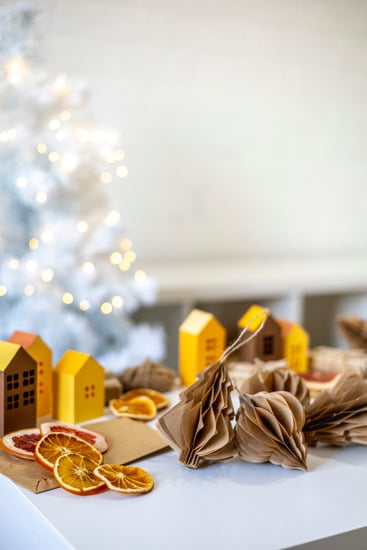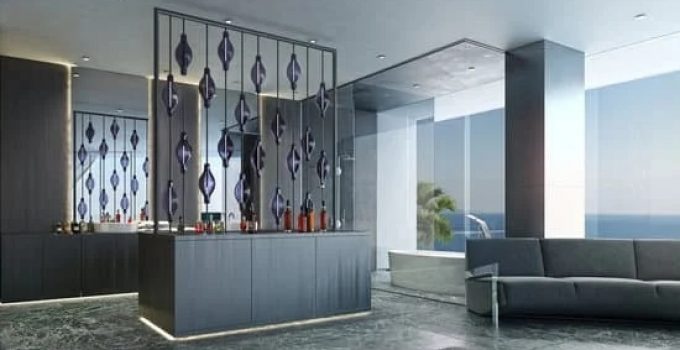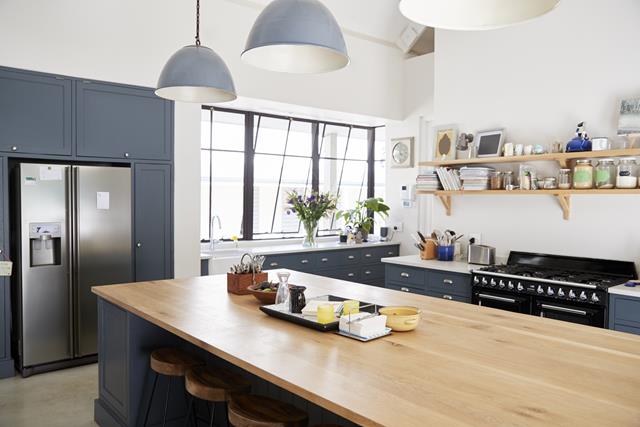Pressure treated wood is a popular choice for outdoor projects, but many people wonder, “Can I use pressure treated wood for home decor?” Pressure treated wood is infused with chemical preservatives to protect it from decay and rot, making it ideal for outdoor use. However, there are safety considerations and guidelines to follow when using pressure treated wood for indoor projects.
When working with pressure treated wood, it’s important to consider the potential health risks and safety measures. The chemicals used in the treatment process can be harmful if not handled properly. Despite this, pressure treated wood can still be used for certain indoor applications in home decor, as long as proper precautions are taken.
In this article, we will explore the different types of pressure treated wood and their uses in home decor. We will also discuss various DIY projects that can be done using pressure treated wood, as well as offer tips for finishing and sealing the wood for indoor use.
Additionally, we will weigh the risks and benefits of using pressure treated wood in home decor, and provide alternatives for those who may prefer to avoid its use altogether. If you’ve ever wondered about the possibilities of incorporating pressure treated wood into your interior design projects, read on to learn more.
Safety Considerations When Working With Pressure Treated Wood
When working with pressure treated wood for home decor projects, it’s important to prioritize safety to avoid any potential health risks. Here are some key safety considerations to keep in mind:
- Wear protective gear: When sawing, sanding, or handling pressure treated wood, it’s crucial to protect yourself with gloves, a dust mask, and safety goggles to prevent contact with the chemicals used in the treatment process.
- Work in a well-ventilated area: To minimize exposure to harmful chemicals, always work with pressure treated wood in a well-ventilated space such as outdoors or in a well-ventilated workshop.
- Avoid direct skin contact: Direct skin contact with pressure treated wood should be minimized. Use tools to handle the wood rather than touching it directly with your hands.
It’s also important to consider the environmental impact of using pressure treated wood for indoor decor. The chemicals used in the treatment process can leach into the surrounding environment over time. Therefore, it’s essential to take proper precautions and consider alternatives if you have pets or small children who may come into contact with the finished products.
In addition, if you plan on using pressure treated wood for an indoor project that will come into frequent contact with people, such as a dining table or countertops, you may want to explore alternative options that do not pose any potential health risks. Safety should always be a top priority when working with pressure treated wood for home decor projects.
Different Types of Pressure Treated Wood and Their Uses in Home Decor
Pressure treated wood comes in various types, each with its own specific uses in home decor. Here are some of the different types of pressure treated wood and how they can be utilized:
- Pressure Treated Pine: This type of wood is commonly used for outdoor furniture, decking, and fencing due to its resistance to decay and insects.
- Pressure Treated Cedar: Known for its natural beauty and durability, pressure treated cedar is often used for outdoor structures such as pergolas, arbors, and garden beds.
- Pressure Treated Fir: With its strength and stability, pressure treated fir is ideal for structural components in home decor projects such as beams, posts, and framing.
Given the versatility of pressure treated wood, it can be incorporated into a variety of DIY home decor projects. Some popular ideas include:
- Outdoor Planters: Pressure treated wood can be used to create stylish and long-lasting planters for your garden or patio.
- Shelving Units: Whether for indoor or outdoor use, pressure treated wood shelves add a rustic touch to any space while providing functional storage.
- Patio Furniture: From benches to tables, pressure treated wood can be transformed into durable and attractive pieces for outdoor lounging and dining areas.
When considering using pressure treated wood in your home decor projects, it’s important to take proper precautions. In particular, ensure that the wood has been properly finished and sealed to minimize the risk of exposure to harmful chemicals. Additionally, always wear protective gear such as gloves and a mask when working with pressure treated wood to avoid any potential health hazards.
DIY Projects Using Pressure Treated Wood for Home Decor
Pressure treated wood is a popular material to use when engaging in do-it-yourself home decor projects. Its durability and resistance to decay make it a great choice for various indoor applications. From shelves to furniture, there are many ways that pressure treated wood can be utilized to enhance the aesthetic of your living space.
Shelving and Storage
One of the most common DIY projects using pressure treated wood for home decor is creating shelving and storage solutions. Whether you’re looking to build a bookshelf, shoe rack, or floating shelves, pressure treated wood provides a sturdy and long-lasting option for these purposes. Its ability to withstand moisture and insects makes it ideal for use in bathrooms, kitchens, or other areas where traditional untreated wood might not hold up as well.
Furniture
Pressure treated wood can also be used to create stylish and functional furniture pieces for your home. From coffee tables to outdoor benches, the possibilities are endless. However, when using pressure treated wood for furniture projects, it’s important to consider the safety considerations mentioned earlier in this article. Protecting yourself from potential health risks is vital when working with this type of wood.
Wall Decor
Another creative way to incorporate pressure treated wood into your home decor is by using it as wall decor. Whether you want to create a statement piece with a wooden accent wall or add some visual interest with decorative wooden panels, pressure treated wood can add warmth and texture to any room. Just be sure to properly finish and seal the wood before installing it indoors.
Tips for Finishing and Sealing Pressure Treated Wood for Indoor Use
Choosing the Right Finish
When using pressure treated wood for indoor decor, it is important to choose the right finish to ensure that the wood is both protected and visually appealing. While pressure treated wood is already resistant to decay and insect damage, it still requires a good finish to protect it from moisture and enhance its appearance.
Common finishes for pressure treated wood include penetrating sealers, stains, and water-repellent preservatives. It is important to select a finish specifically designed for pressure treated wood to ensure proper adhesion and protection.
Sealing Techniques
Before applying any finish, it is crucial to allow the pressure treated wood to dry thoroughly. This process can take several weeks or even months depending on the type of treatment used and environmental conditions. Once dried, sanding the surface smooth can help improve adhesion of the finish.
When applying the chosen finish, make sure to follow manufacturer instructions carefully and apply multiple thin coats rather than one thick coat. This will help ensure even coverage and a more durable seal.
Maintenance Tips
Even with a proper finish, pressure treated wood used in indoor decor will still require maintenance over time. Regular cleaning with mild soap and water can help keep the wood looking its best, while reapplication of the finish may be necessary every few years depending on wear and exposure to sunlight. Additionally, keeping indoor humidity levels balanced can help prevent warping or cracking of the wood over time.
Overall, when finished and sealed properly, pressure treated wood can be a durable and attractive option for home decor projects.
Risks and Benefits of Using Pressure Treated Wood in Home Decor
Pressure treated wood is commonly used in outdoor construction to protect from rot and decay, but can i use pressure treated wood for home decor? There are some risks and benefits to consider when using pressure treated wood in home decor projects. It’s important to weigh these factors carefully before deciding whether or not to incorporate pressure treated wood into your indoor design.
One of the main benefits of using pressure treated wood for home decor is its durability. Pressure treated wood is designed to withstand the elements, so it can stand up to wear and tear in a high-traffic area of your home. Additionally, because it is resistant to rot and decay, it may have a longer lifespan than untreated wood. This means that furniture or decorative items made from pressure treated wood could last for many years.
On the other hand, there are also some potential risks associated with using pressure treated wood in home decor. One concern is the presence of chemicals in the treatment process, specifically copper and chromium, which can be harmful if ingested or inhaled. For this reason, it’s important to take appropriate safety precautions when working with pressure treated wood, such as wearing gloves and a mask, and ensuring proper ventilation in your workspace.
Ultimately, whether or not you choose to use pressure treated wood for home decor will depend on your specific needs and preferences. However, it’s important to be aware of both the benefits and risks before making a decision. If you decide that pressure treated wood is not the right choice for your project, there are plenty of alternative materials that can achieve a similar look without the potential drawbacks.
Alternatives to Pressure Treated Wood for Home Decor Projects
Pressure treated wood is a popular choice for outdoor projects, but can i use pressure treated wood for home decor as well? There are some safety considerations to keep in mind when using pressure treated wood in indoor projects, so it may not be the best option for home decor. However, there are alternatives to pressure treated wood that can be used for home decor projects that provide a similar look and feel without the potential health risks.
One alternative to pressure treated wood for home decor projects is cedar. Cedar is naturally resistant to rot and insects, making it a durable and safe option for indoor use. It has a beautiful natural color and grain pattern that can add warmth and character to any home decor project. Cedar is often used for furniture, wall paneling, and decorative accents.
Another alternative to pressure treated wood is reclaimed or salvaged wood. Reclaimed wood offers a unique look with its weathered appearance and history of previous use. This type of wood can be sourced from old barns, warehouses, or even shipping pallets. Using reclaimed wood for home decor projects not only adds charm and character but also promotes sustainability by repurposing material that would otherwise go to waste.
For those looking for a more modern and sustainable alternative to pressure treated wood, engineered wood products such as MDF (medium-density fiberboard) or plywood can be used for home decor projects. These materials are manufactured from recycled and renewable resources, making them an environmentally friendly choice. They come in various finishes and can be easily painted or stained to achieve the desired look.
When considering alternatives to pressure treated wood for home decor projects, it’s important to weigh the pros and cons of each material based on your specific needs and aesthetic preferences. Whether you choose cedar for its natural beauty, reclaimed wood for its history and character, or engineered wood products for their sustainability, there are plenty of options available that can achieve the look you want without sacrificing safety or style.
| Alternative Wood Option | Advantages | Disadvantages |
|---|---|---|
| Cedar | Naturally resistant to rot and insects | Higher cost compared to other options |
| Reclaimed Wood | Unique weathered appearance | Potential presence of lead paint or contaminants |
| Engineered Wood Products (MDF/Plywood) | Sustainable resource usage | Limited natural grain pattern compared to solid wood |
Conclusion
In conclusion, pressure treated wood can be a suitable option for home decor projects, but it is important to consider the potential risks and benefits. While pressure treated wood is durable and resistant to decay and insect damage, it contains chemicals that could pose health risks if not handled and used properly. Safety considerations when working with pressure treated wood, such as wearing protective gear and working in well-ventilated areas, are crucial to minimize exposure to harmful substances.
When using pressure treated wood for home decor, it is essential to select the appropriate type for indoor use and ensure that it is finished and sealed properly to prevent the leaching of chemicals into the indoor environment. DIY projects using pressure treated wood, such as furniture or decorative elements, can add a unique touch to your home decor, but careful consideration must be given to the location and application of these pieces.
While pressure treated wood is a popular choice for outdoor structures like decks and fences, there are alternatives available for indoor home decor projects such as untreated wood, composite materials, or reclaimed lumber. It is important to weigh the risks and benefits when deciding whether to use pressure treated wood for home decor and explore alternative options that align with your safety concerns and aesthetic preferences.
Ultimately, while pressure treated wood can be used for certain home decor projects with proper precautions in place, individuals should carefully evaluate whether it is the best choice for their specific needs and consider alternative materials that may better suit their goals for creating a safe and stylish living environment.
Frequently Asked Questions
Is Pressure-Treated Wood Safe for Indoor Use?
Pressure-treated wood is typically safe for indoor use, but it’s important to use the right type of treatment. Look for wood treated with alkaline copper quaternary (ACQ) or copper azole (CA), which are safer for indoor applications.
Can You Use Pressure-Treated Wood for Crafts?
Yes, pressure-treated wood can be used for crafts as long as proper safety precautions are taken. Wear a mask and gloves when cutting and sanding the wood to avoid inhaling the chemicals used in the treatment process.
Where Not to Use Pressure-Treated Wood?
Pressure-treated wood should not be used in direct contact with drinking water or food, such as cutting boards or countertops. It also should not be burned, as this releases harmful chemicals into the air. Additionally, avoid using it for children’s play equipment or toys due to potential chemical exposure.

Hello, lovely readers! I’m Sheila Collins, and I’m delighted to be your trusted guide on this exciting journey of home improvement, design, and lifestyle. As the founder and editor-in-chief of Home Guide Blog, I’m passionate about all things related to homes, and I’m here to share my knowledge, experiences, and insights with you.





